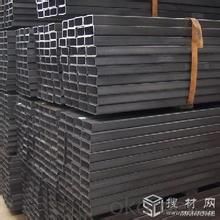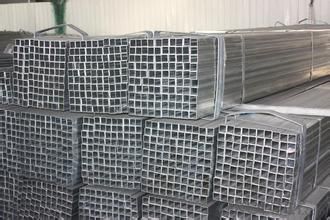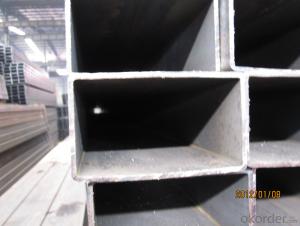Rectangular Hot Rolled Steel Tube
- Loading Port:
- China Main Port
- Payment Terms:
- TT or LC
- Min Order Qty:
- -
- Supply Capability:
- -
OKorder Service Pledge
OKorder Financial Service
You Might Also Like
Quick Details
| Thickness: | 1.0 - 35 mm | Section Shape: | Square | Outer Diameter: | 20*20-600*600 |
| Place of Origin: | Shandong China (Mainland) | Secondary Or Not: | Non-secondary | Application: | Structure Pipe |
| Technique: | Cold Rolled | Certification: | CE | Surface Treatment: | oil,paint |
| Special Pipe: | Thick Wall Pipe | Alloy Or Not: | Non-alloy | Name: | Square Hollow Steel Pipe/Tube |
| Shape: | Square/Rectangular | Yield Strength: | 360-380Mpa | Tensile Strength: | 560-580Mpa |
| Elongation: | 24-28% | Bend Test: | Qualified | Impact Value: | V-notch |
| Grade: | 20#,45#,16Mn,A210,St45,Q235,Q345,Q195,Q215,10#-45#,A53-A369,ST35-ST52,Q195-Q345 | Standard: | JIS G3465-2006,JIS G3466,GB/T 3094 |
Specifications
OD:15X15-800X800MM,20X30--600X800MM
Thick.:1.0--35.0MM
Rectangular Hot Rolled Steel Tube Image


FAQ of Rectangular Steel Tube
①How is the quality of your products?
Our products are manufactured strictly according to national and internaional standard, and we take a test
on every pipe before delivered out. If you want see our quality certifications and all kinds of testing report, please just ask us for it.
Guaranteed: If products’ quality don’t accord to discription as we give or the promise before you place order, we promise 100% refund.
②How about price?
Yes, we are factory and be able to give you lowest price below market one, and we have a policy that “ for saving time and absolutely honest business attitude, we quote as lowest as possible for any customer, and discount can be given according to quantity”,if you like bargain and factory price is not low enough as you think, just don’t waste your time.Please trust the quotation we would give you, it is professional one.
③Why should you chose us?
Chose happens because of quality, then price, We can give you both.Additionally, we can also offer professional products inquiry, products knowledge train(for agents), smooth goods delivery, exellent customer solution proposals.Our service formula: good quality+good price+good service=customer’s trust
SGS test is available, customer inspection before shipping is welcome, third party inspection is no problem.
If you have any question, pls feel free to contact us !
- Q:What is the difference between internal coating and external lining of steel pipes?
- Steel pipes can be protected from corrosion and damage through two different methods: internal coating and external lining. When it comes to internal coating, a protective layer or coating is applied to the inner surface of the steel pipe. This is done to prevent corrosion or damage caused by the fluid or substance being transported through the pipe. Common materials used for the coating include epoxy, polyurethane, or polyethylene. These materials create a barrier between the pipe and the transported material, thus extending the pipe's lifespan and preserving the quality of the transported material. On the other hand, external lining involves applying a protective layer or lining to the outer surface of the steel pipe. The purpose of this is to shield the pipe from external elements like soil, moisture, chemicals, and physical damage. Materials such as polyethylene, polypropylene, or fusion-bonded epoxy are typically used for the external lining. By acting as a barrier, the lining prevents corrosive substances from coming into contact with the pipe and causing harm. Additionally, it helps maintain the pipe's structural integrity and prevents the formation of leaks or cracks. To summarize, the main distinction between internal coating and external lining of steel pipes lies in where the protective layer is applied. Internal coating focuses on the inner surface of the pipe, while external lining concentrates on the outer surface. While both methods aim to safeguard the pipe from corrosion and damage, they address different aspects of pipe protection.
- Q:Can steel pipes be used for airport construction?
- Yes, steel pipes can be used for airport construction. Steel pipes are commonly used in various applications in the construction industry, including airports. They are often used for underground utilities such as water and sewage lines, as well as for structural purposes such as supporting the airport terminal building. Steel pipes offer several advantages for airport construction. Firstly, they have high strength and durability, making them suitable for handling heavy loads and withstanding adverse weather conditions. This is important for ensuring the safety and stability of airport structures. Secondly, steel pipes are versatile and can be easily customized to fit specific project requirements. They come in various sizes and thicknesses, allowing for flexibility in design and construction. Additionally, steel pipes can be welded or joined together to create longer sections, which simplifies installation and reduces construction time. Moreover, steel pipes are resistant to corrosion, which is crucial in airports where there is constant exposure to moisture, salt, and other environmental factors. Their resistance to corrosion ensures the longevity and reliability of the infrastructure. Lastly, steel pipes are cost-effective compared to other materials such as concrete or PVC. They have a relatively low maintenance requirement and a long lifespan, reducing the need for frequent repairs or replacements, thus saving time and money in the long run. In conclusion, steel pipes are a suitable choice for airport construction due to their strength, durability, versatility, corrosion resistance, and cost-effectiveness.
- Q:What are the factors to consider when selecting the right steel pipe for a specific application?
- When selecting the right steel pipe for a specific application, there are several factors that need to be considered. These factors include: 1. Material compatibility: It is important to ensure that the steel pipe is compatible with the material it will be transporting or containing. Different materials may require specific types of steel pipes to avoid corrosion or contamination. 2. Pressure and temperature requirements: The pressure and temperature conditions that the steel pipe will be exposed to must be taken into account. This will determine the required thickness and strength of the pipe to ensure it can withstand the desired operating conditions. 3. Size and dimensions: The size and dimensions of the steel pipe should be chosen based on the flow rate, volume, and space available for installation. It is crucial to select a pipe with the appropriate diameter and wall thickness to prevent any flow restrictions or leakage. 4. Environmental conditions: The environment in which the steel pipe will be installed should be considered. Factors such as exposure to moisture, chemicals, or extreme temperatures may require the use of specific coatings or materials to enhance the pipe's durability and longevity. 5. Cost considerations: The cost of the steel pipe and its installation should be taken into account. It is essential to strike a balance between the desired quality and the available budget to ensure the most cost-effective solution. 6. Regulatory compliance: Depending on the application, there may be specific industry regulations or standards that need to be followed. It is important to choose a steel pipe that meets these requirements to ensure compliance and avoid any legal or safety issues. 7. Maintenance and lifespan: The maintenance requirements and expected lifespan of the steel pipe should also be considered. Some applications may require regular inspections or replacements, while others may require a more durable and long-lasting pipe. By carefully considering these factors, one can select the right steel pipe for a specific application that meets the desired performance, durability, and safety requirements.
- Q:Are steel pipes suitable for semiconductor manufacturing plants?
- Yes, steel pipes are appropriate for use in semiconductor manufacturing plants. Steel pipes are renowned for their durability, strength, and resistance to corrosion, making them an exceptional option for a variety of industrial applications, including semiconductor manufacturing. Within semiconductor manufacturing plants, a range of chemicals and gases are employed throughout the production process. Steel pipes possess a high degree of resistance to corrosion and can endure the harsh chemicals and gases typically encountered in semiconductor manufacturing environments, thereby ensuring the integrity and longevity of the piping system. Moreover, steel pipes are capable of withstanding high-pressure conditions, which are frequently required in semiconductor manufacturing plants. They exhibit excellent mechanical properties and can endure heavy loads and stress, rendering them dependable for the transportation of fluids and gases under high pressure. Another benefit of steel pipes is their adaptability in terms of size and shape. Semiconductor manufacturing plants often necessitate a complex and intricate piping system to accommodate diverse processes and equipment. Steel pipes can be easily customized and fabricated to meet specific requirements, enabling efficient and seamless integration into the infrastructure of the plant. In summary, steel pipes possess the necessary qualities and characteristics for use in semiconductor manufacturing plants. Their durability, resistance to corrosion, high-pressure capabilities, and flexibility make them a suitable choice for the transportation of chemicals and gases in this industry.
- Q:How are steel pipes used in the manufacturing of chemical processing plants?
- Steel pipes are commonly used in chemical processing plants for various purposes, such as transporting fluids and gases, as well as providing structural support. They are highly resistant to corrosion, making them ideal for handling corrosive materials in the plant. Additionally, steel pipes can withstand high temperatures and pressure, ensuring the safe and efficient operation of chemical processes.
- Q:How are steel pipes used in the manufacturing of irrigation systems?
- Steel pipes are commonly used in the manufacturing of irrigation systems due to their durability, strength, and ability to withstand high water pressure. These pipes are used to transport water from the source to the farmland or fields, ensuring efficient and reliable irrigation. Additionally, steel pipes are corrosion-resistant, making them ideal for use in various environmental conditions.
- Q:Can steel pipes be used for conveying slurry?
- Yes, steel pipes can be used for conveying slurry. Steel pipes are commonly used in industries such as mining, dredging, and wastewater treatment, where slurry - a mixture of solid particles and liquid - needs to be transported. Steel pipes offer high strength, durability, and resistance to abrasion, making them suitable for handling the abrasive nature of slurry. Additionally, steel pipes can be lined or coated with materials such as rubber or ceramic to further enhance their resistance to wear and corrosion, making them a reliable choice for conveying slurry.
- Q:What are the different types of steel pipe coatings for chemical processing plants?
- There are several types of steel pipe coatings commonly used in chemical processing plants, including epoxy, polyethylene, polyurethane, and fusion-bonded epoxy (FBE) coatings. Each coating offers different benefits such as corrosion resistance, chemical resistance, and enhanced durability, which are crucial for protecting steel pipes against the harsh conditions and corrosive substances found in chemical processing plants.
- Q:Where is a steel pipe casing usually used?
- Classification of casing: rigid casing, flexible waterproof sleeve, steel pipe sleeve and iron sheet bushing, etc..
- Q:What is the role of steel pipes in the aerospace industry?
- Steel pipes play a crucial role in the aerospace industry as they are widely used for various applications such as fuel and hydraulic systems, air conditioning, and structural support. These pipes provide strength, durability, and resistance to high pressures and extreme temperatures, ensuring the safe and efficient operation of aircraft.
1. Manufacturer Overview |
|
|---|---|
| Location | |
| Year Established | |
| Annual Output Value | |
| Main Markets | |
| Company Certifications | |
2. Manufacturer Certificates |
|
|---|---|
| a) Certification Name | |
| Range | |
| Reference | |
| Validity Period | |
3. Manufacturer Capability |
|
|---|---|
| a)Trade Capacity | |
| Nearest Port | |
| Export Percentage | |
| No.of Employees in Trade Department | |
| Language Spoken: | |
| b)Factory Information | |
| Factory Size: | |
| No. of Production Lines | |
| Contract Manufacturing | |
| Product Price Range | |
Send your message to us
Rectangular Hot Rolled Steel Tube
- Loading Port:
- China Main Port
- Payment Terms:
- TT or LC
- Min Order Qty:
- -
- Supply Capability:
- -
OKorder Service Pledge
OKorder Financial Service
Similar products
New products
Hot products
Hot Searches
Related keywords





























